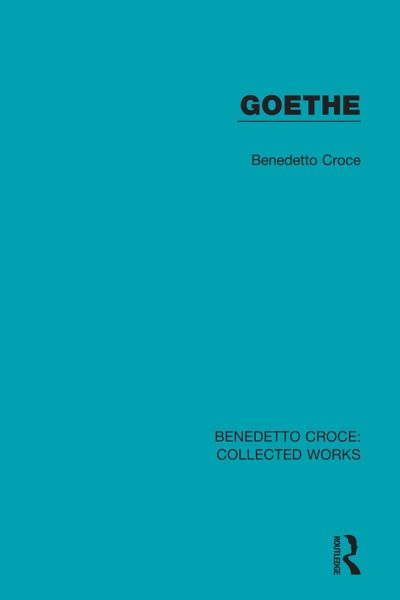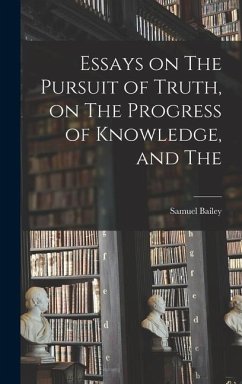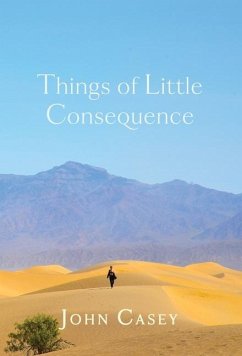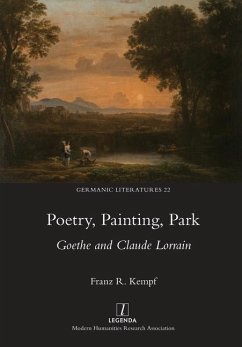
Goethe
Versandkostenfrei!
Versandfertig in 1-2 Wochen
46,99 €
inkl. MwSt.
Weitere Ausgaben:

PAYBACK Punkte
23 °P sammeln!
Croce admired Goethe partly because the latter possessed a knowledge of human nature in all its aspects but nonetheless kept his mind above and beyond political sympathies and the quarrels of nations. In this volume originally published in English in 1923, Croce distils his critical ideas about Goethe with the aim of helping readers to better understand the German poet's work.














